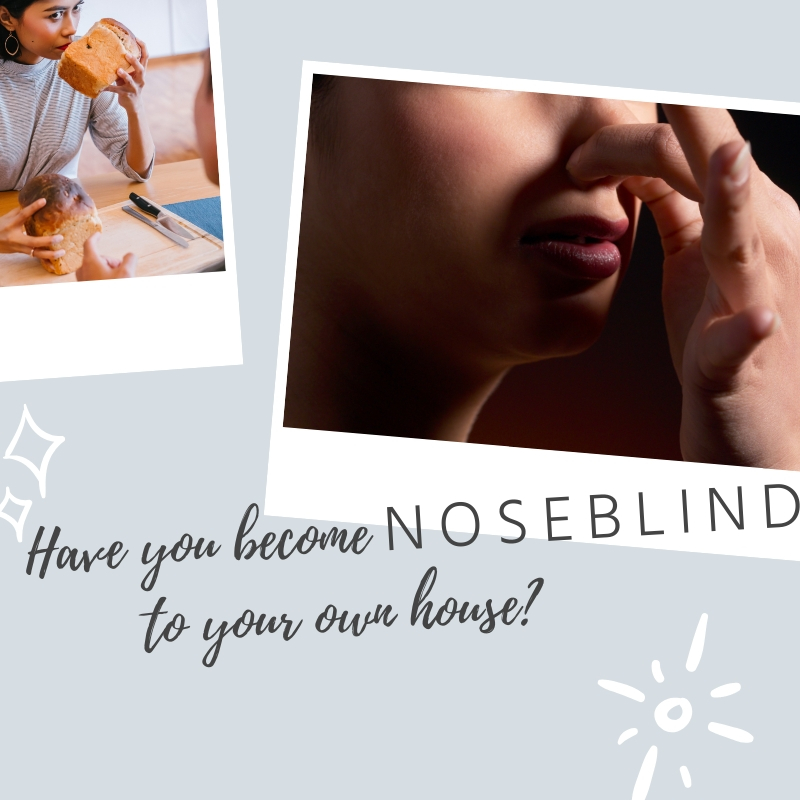Unraveling the Mystery of Nose Blindness: How to Uncover Hidden Odors in Your Home
 You’ve probably seen those commercials where people have gone “nose blind” to odors in their home such as garbage, kitty litter, or cigarette smoke, but how do you know if you have become nose blind to your own odor? The phenomenon of nose blindness, also known as olfactory adaptation, is a real thing, and it can affect anyone. According to psychologists, it’s a prevalent issue that many people are unaware of, causing them to overlook persistent smells in their living spaces. In this article, we will delve deeper into the world of nose blindness, understand its causes, and explore various methods to make yourself more aware of the interior odors that might be lurking around your home.
You’ve probably seen those commercials where people have gone “nose blind” to odors in their home such as garbage, kitty litter, or cigarette smoke, but how do you know if you have become nose blind to your own odor? The phenomenon of nose blindness, also known as olfactory adaptation, is a real thing, and it can affect anyone. According to psychologists, it’s a prevalent issue that many people are unaware of, causing them to overlook persistent smells in their living spaces. In this article, we will delve deeper into the world of nose blindness, understand its causes, and explore various methods to make yourself more aware of the interior odors that might be lurking around your home.
The concept of nose blindness is quite fascinating. Our sense of smell, while incredibly powerful, can also be remarkably selective. When we encounter a new smell, our nose registers it and analyzes whether it poses any threat or requires immediate attention. If it’s deemed non-threatening or unimportant, our receptors tend to shut down for that particular odor, leading to a decreased ability to detect it over time. This is why smells that persist in our surroundings often go unnoticed.
Now, you might be wondering how you can ascertain whether you are a victim of nose blindness. Fear not, as there are several methods to uncover hidden odors in your home and regain your sensitivity to them.
The first and most effective approach is to distance yourself from your living space for an extended period. Consider leaving your home for a few days or even a week. During your absence, close all the windows and doors to seal in the odors. Upon your return, take a deep breath through your nose as soon as you open the door. The fresh perspective you gain from being away can make any lingering odors more noticeable.
Another technique to test for hidden odors is to get your blood flowing. Engage in physical activities that get your heart rate up, such as running up and down the stairs, jumping, or taking brisk laps around the block. Physical exertion increases your respiration rate, allowing you to take in more air and consequently perceive any lingering smells that might have become unnoticeable during periods of inactivity.
Asking for feedback might feel awkward, but it is an effective way to find out if your house has any lingering smells. Reach out to a trusted friend or family member who can be brutally honest with you, and ask for their opinion on how your house smells. Since they are not accustomed to your home’s scent, they will be better able to identify any unusual or persistent odors.
Interestingly, merely worrying about whether your house smells can actually improve your ability to detect foul odors. Fear and stress seem to interfere with our sense of shutting off familiar scent receptors. By stressing out about the possibility of hidden odors, you might activate your sense of smell, making you more sensitive to any unwanted scents.
In addition to these methods, there are other proactive measures you can take to ensure your home remains free of unpleasant odors. Regularly cleaning and maintaining your living space is crucial. Be diligent in taking out the trash, cleaning litter boxes, and using air fresheners or natural remedies like essential oils to maintain a fresh atmosphere. Opening windows regularly for ventilation can also help prevent odors from accumulating.
Furthermore, be mindful of any potential sources of lingering smells in your home. If you have pets, bathe and groom them regularly, and wash their bedding to keep pet odors at bay. If you smoke, consider doing it outdoors to minimize the impact on indoor air quality. Additionally, regularly clean carpets, upholstery, and curtains, as they can trap odors over time.
In conclusion, nose blindness, or olfactory adaptation, is a real and common phenomenon that can cause us to overlook persistent odors in our homes. However, by employing various methods such as leaving your home for a while, engaging in physical activities, seeking feedback, and even worrying a bit, you can become more aware of hidden odors and take proactive steps to eliminate them. Maintaining a clean and fresh living space is essential for a healthier and more pleasant environment for you and your guests. So, why not challenge your sense of smell and unmask those elusive odors today?
